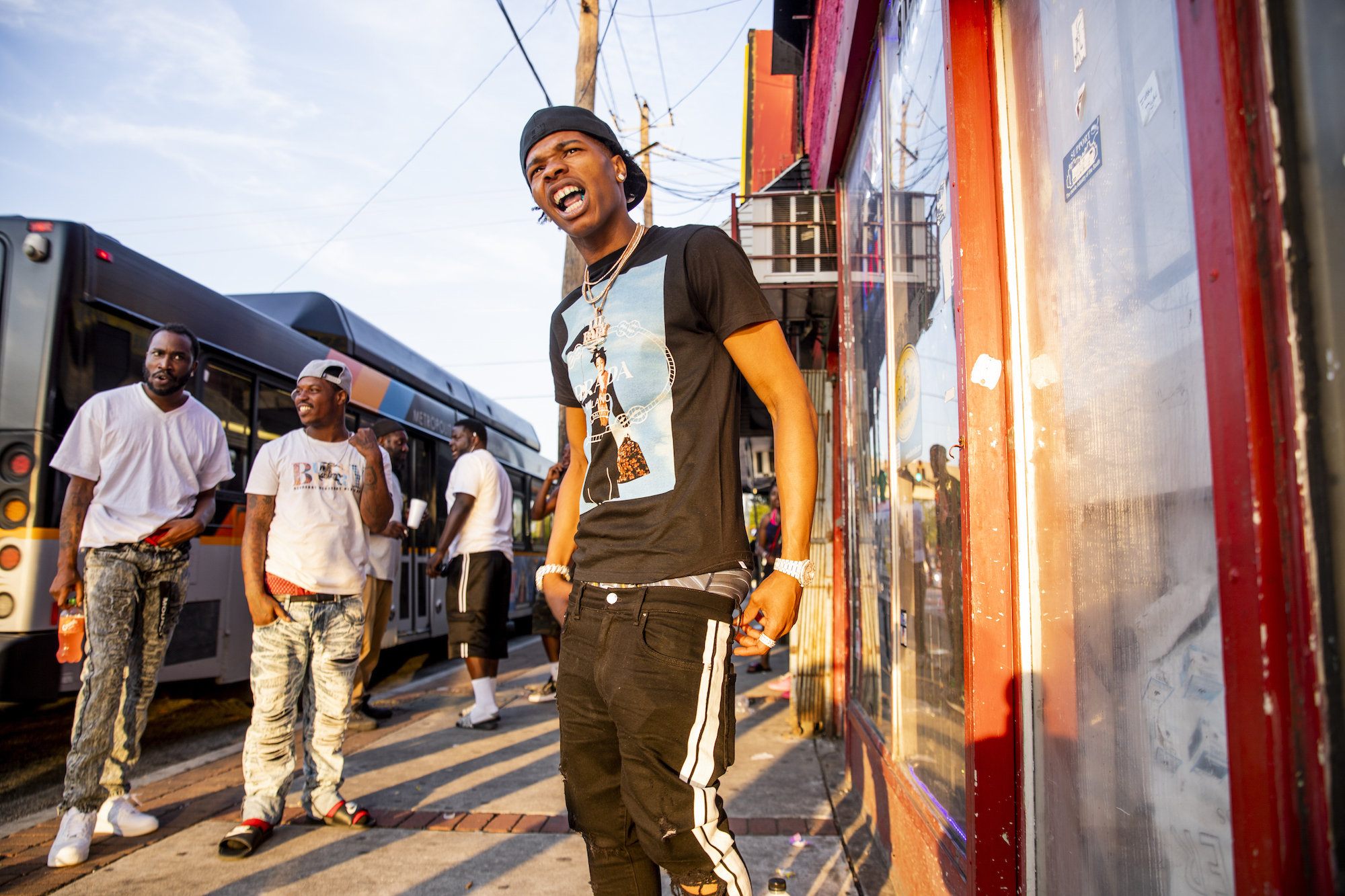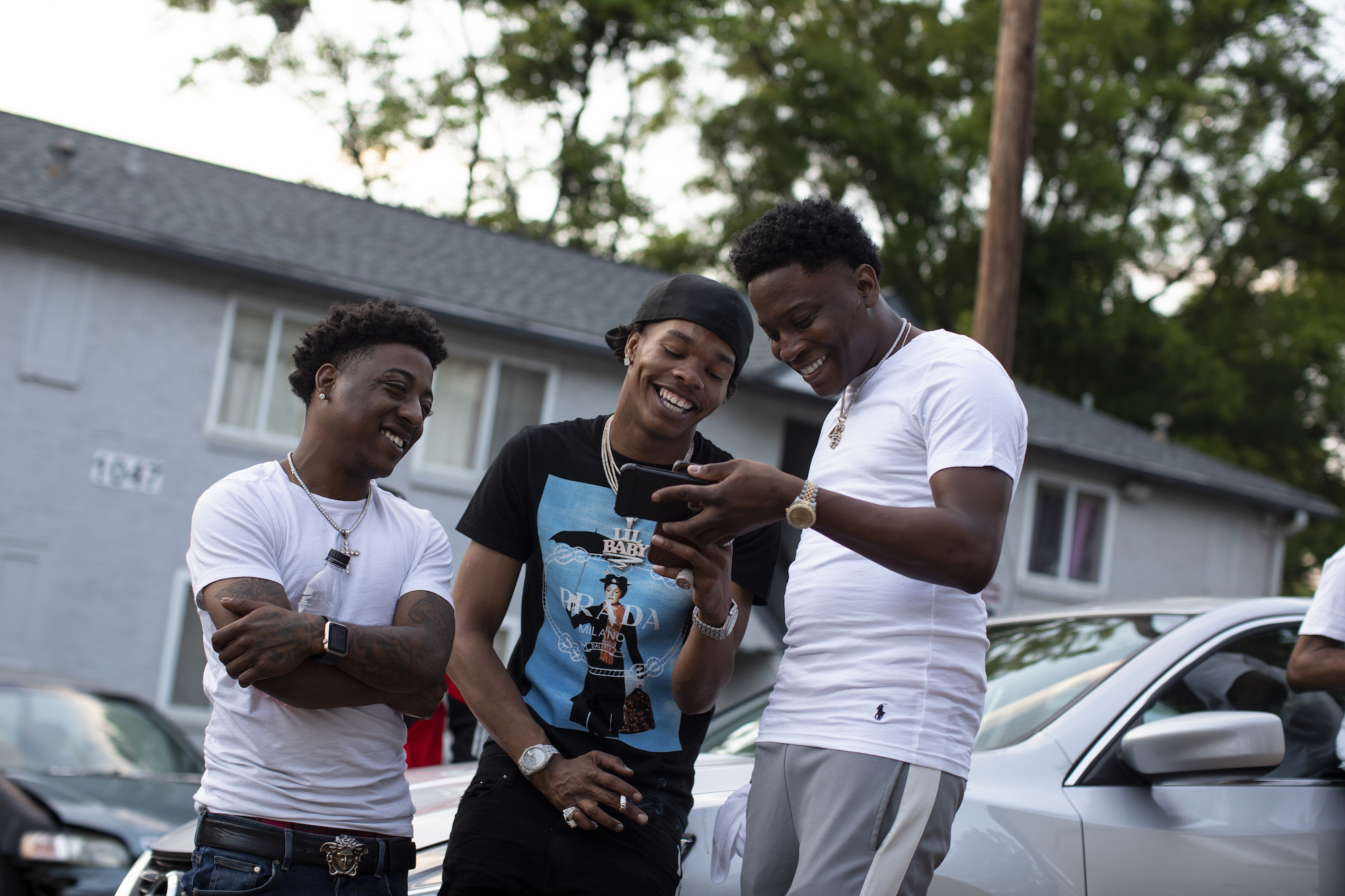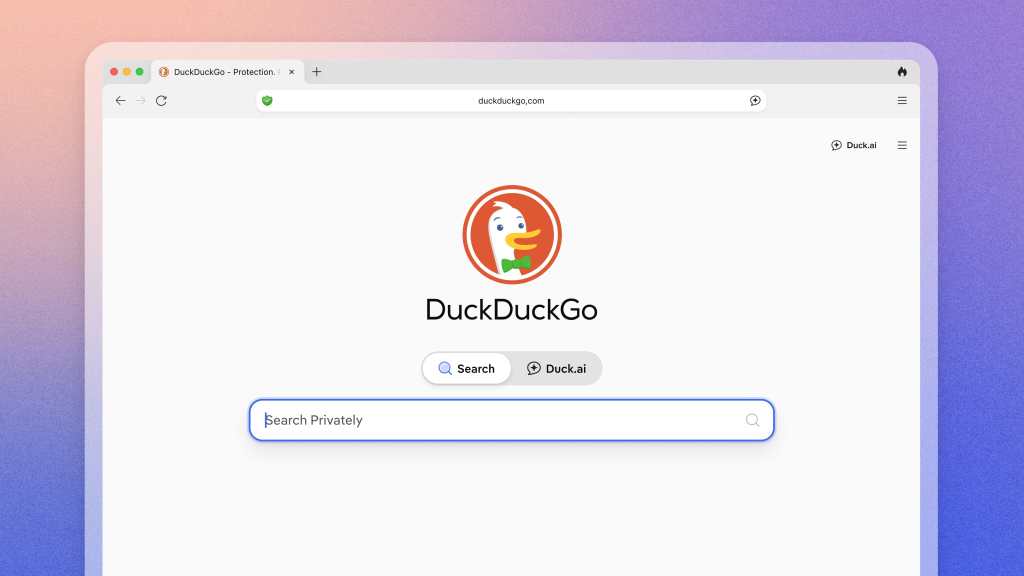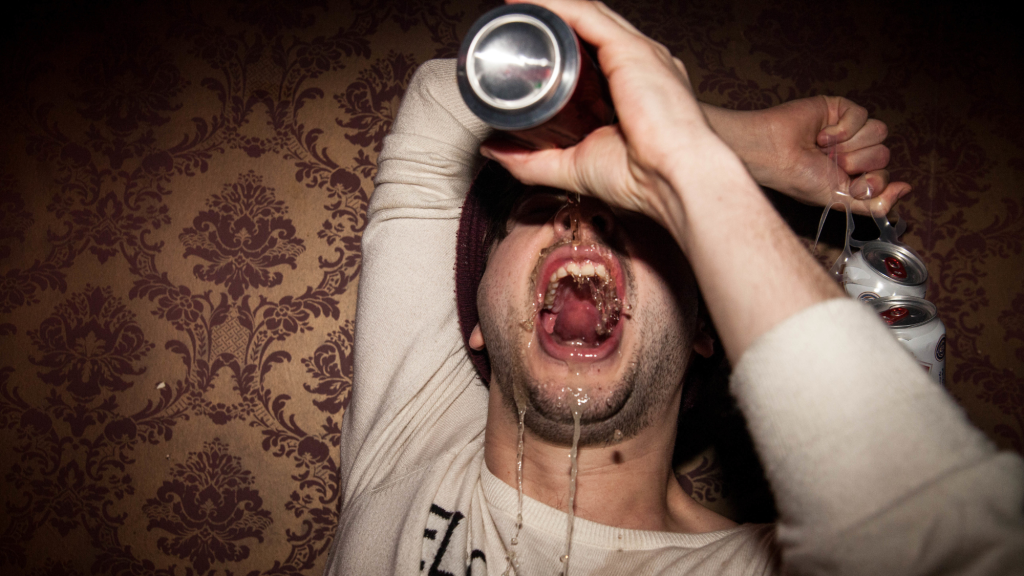A few days ago, Lil Baby bought a car that most people not only can’t afford but probably don’t even know exists. The 2019 Chevrolet Corvette Z06 convertible costs around $85,000 for the cheapest version and goes up from there. It features a carbon-fiber racing body, a 6.2 liter V8 engine that reaches 650 horsepower, and a 0-60 time of under three seconds. It comes with a seven-speed manual or eight-speed automatic transmission. The 23-year-old rapper drives automatic, which costs extra. The Chevrolet marketing materials boast “a dry-sump oil system, Direct Injection and Continuously Variable Valve Timing.” I do not know what this means. The marketing materials add, “this supercharged powerhouse is engineered for extreme speed and acceleration.” I do know what this means. It means that when Lil Baby pulls up, you hear him before he arrives.
The sound is a deep, baritone rumble, and it is why you drive this car. “It’s motivation,” Lil Baby told me. We were in the parking lot behind the Atlanta studio owned by Baby’s label, Quality Control, and we had to speak up over the comparable roar of his friend Ced’s Chevrolet SS, a car that the car website Jalopnik has described as a “roided-the-fuck-up monster sedan.” The two of them were running the engine and examining a spot above the exhaust pipe on the car’s body, which appeared to have melted away from the heat below.
Videos by VICE
“If you’re a young black dude from the hood you want to come through the hood in a car that makes a lot of noise,” Baby explained. His first car that fit that description was the Dodge Hellcat, a behemoth of American muscle that comes with one key for driving in regular 500-horsepower mode and another for jacking it all the way up to its full 707-horsepower potential. There is a line in one of Lil Baby’s songs, called “Trap Star,” where he describes the moment of pulling up to his old block by Atlanta’s West End mall in that car, and it sounds like a daydream, like literal magic. The Corvette was too new to have found its way into any songs yet, but it already looked ethereal. Lil Baby wants to have it painted blue. “You’re really just paying for the motor,” he said, looking at it.
I asked if I could ride in it with him. We were getting ready to head to the West End mall, to see more or less that exact scene. He looked me up and down, then asked, “You know how to shoot?” Since we’d met, he’d been chastising me for not bringing a video camera to document his lifestyle better. He repeated the question, making a gun with his hand. Then he laughed, answering for me, “then you can’t get in the coupe!” He said it again, “Don’t know how to shoot, you can’t get in the coupe!” He told me to write it down, spelling out the story: “And then he said, ‘if you don’t know how to shoot, you can’t get in the coupe,’ whatever that mean. Make sure you say that: ‘whatever that mean.’”
He hopped in the Corvette with his friend Steve, a.k.a. G-Five, a.k.a. the guy he’s talking about when he raps “free G-Five on the G5” in “To the Top.” Then he reversed aggressively, spun the car around, revved the engine, whipped the steering wheel, fishtailed in the few feet of asphalt at his disposal, and peeled out of the parking lot, leaving tire marks in his wake.
It has been just over a year since Lil Baby started rapping, and he is already one of the hottest new rappers in Atlanta. Since last April, he has released four mixtapes, starting with a project called Perfect Timing. On May 18, he’ll continue that run with a new project, Harder Than Ever. With each release, he’s improved, mastering new styles and honing a sound that is already fully his own.
His breakout song, “My Dawg,” which arrived last summer on the mixtape Harder Than Hard, is a lilting anthem with an indelible hook. His biggest hit, “Freestyle,” from last fall’s Too Hard, is a hookless two and a half minutes of slightly melody-inflected rapping. Another Too Hard single getting radio play right now is “Suddenly,” a bruising but fun back-and-forth with Memphis rapper Moneybagg Yo that features no melody at all. Each independently feels like a logical progression of the Atlanta trap sound as it evolves in the wake of the success of the generation that birthed stars like Young Thug, and Migos. Lil Baby has songs with those guys, naturally, since they’re his friends. He also has a song with Gucci Mane. This week, he put out a song with Drake. It’s called “Yes Indeed.” It’s good.
“People in Atlanta look up to him. They dress like him, everything. They want to be him,” Quay Global told me. Quay produced “My Dawg,” as well as the bulk of Too Hard and Harder Than Ever. “He’s the wave. I can’t say it enough. Bruh is the wave. He got that shit on lock. Like, the swag he come with, that shit fuck the game up.”
From the time Quality Control’s founders, Pee and Coach K started the label, they saw Lil Baby’s potential as an artist, even if Lil Baby didn’t. Pee had known Baby since he was a teenager, coming up under the same OG in the streets as Pee himself had a generation or two earlier.
“Everybody know Lil Baby from being in the hood, doing what he do, at a young age, getting money, at that age, he’s dealing with a lot of people,” Pee explained. “And he was always in the studio, like gambling against the rappers and all this stuff, hanging out with everybody. Coach used to always say, like, ‘Lil Baby got that swag, he the definition of a real Atlanta dude.’”

It wasn’t until Lil Baby landed in prison on a two-year drug sentence that the message started to get through, or at least that Lil Baby showed an interest in diversifying his income stream. Coach and Pee kept talking to him, and when he got out, he started coming around the studio again, this time to make music. Pee had producers feed him beats, and Baby started to find his sound.
“You could tell that he was new to it, but the songs they were actually pretty decent,” Pee said. “Because I told him, ‘the only thing you gotta talk about is your life. You done seen everything.’”
“Coach used to always say, like, ‘Lil Baby got that swag, he the definition of a real Atlanta dude.’” —Quality Control CEO Pee
Perhaps an hour after we were supposed to meet for the first time, I got a phone call from Lil Baby’s manager, Rashad, letting me know that Baby had just left the Benz dealership and was on his way to a video shoot. Could I meet him there instead? Lil Baby showed up to the shoot literally skrrrting into the warehouse parking lot in the Corvette—the dealership was still finalizing the paperwork on the white G-Wagon he’d just bought and would deliver it to the shoot when they were done. He made a beeline for Rashad, who palmed him a stack of cash for appearing in the video.
“Baby too explicit for a write-up,” Lil Baby told me immediately, bouncing past and onto a new thought, engaging with his friends before circling back to continue his ribbing. His friends—who introduced themselves as Hotboy Nunk, Baby Gangsta, 4PFDT, Lil Tiger, and G-Five—piled onto this sentiment before personally writing their names in my notebook just in case the article did turn out to be worthwhile. Pictures, including the ones he posts on his own Instagram, often make Lil Baby out to be stolid, contemplating the middle distance with a flat expression on his face. He’s frequently in motion and constantly animated—good, with his broad smile and quick banter, at being the center of attention, and equally good, with a tighter smile, at keeping strangers at a remove.
True to his name, he is small, with a light frame off of which pants sag in natural protest of his diminutive belt size. He changed from one seemingly fine white Polo T-shirt into another brand new one. Someone came by and complimented his song with Drake, a snippet of which had made its way onto Instagram the day before. A group of men worked on getting a Lamborghini from the parking lot into the warehouse for the shoot. Three models in stilettos and revealing leotards loitered before drumming up the nerve to ask for a picture. Lil Baby agreed—who wouldn’t!—and delicately wrapped his arms around their waists, avoiding even the semblance of inappropriate touching. Then, in a moment so mundane that Lil Baby might tell me not to put it even in the blooper reel of my nonexistent video, I watched as Lil Baby and three half-naked models were nearly hit by a Lamborghini reversing its way into the warehouse.

“Every video Lil Baby doin’, we in the hood,” G-Five told me when I asked how this spectacle compared to Baby’s own video shoots. “No security, though,” he added. “We don’t need no security.” After the photo op, we’d watched quietly together as the shoot proceeded, with money being thrown in the air. While Lil Baby’s life smoothly fit the contours of all this cliché rapper stuff, it also was clearly not of a part with it.
Lil Baby might be living in a world of fast cars and models, but his version of it isn’t about the image. It’s not about bragging. It’s about a night out after the Moneybagg Yo show, performing for a crowd that knows every word to Lil Baby’s songs despite it being another rapper’s show, then peeling out of the venue in a caravan—G-Wagon, Corvette, Hellcat—screaming through the streets of downtown Atlanta, running red lights, sending plumes of rocketship noises into the air. It’s gleefully telling your manager the next day about all those lights you ran—“The whole Peachtree, the whole way home, nigga, no stops!”
“When I listen to Lil Baby, it put me in a mind of where [Atlanta] was with Gucci Mane and Young Jeezy and T.I.” says Quality Control CEO Pee. “Back to the trap.”
“People tell me, ‘This is the new Atlanta right here,’” Pee said. “I don’t feel like it’s been an artist that came and took the lane from Atlanta as far as, like, what’s real. When I listen to Lil Baby, it put me in a mind of where it was with Gucci Mane and Young Jeezy and T.I. Back to the trap. It put me back in that space. Like he’s the new version of that.”
All of Lil Baby’s exploits might make him look like a perfect rapper, but they wouldn’t mean nearly as much if Lil Baby weren’t also making incredible rap music. And yet, in just a year, Lil Baby has managed to end up with not only the career of someone far more experienced but also the technical ability. His music works within the expanded dimensions of vocal manipulation and melody Future and Young Thug injected into Atlanta trap over the last half decade, but his own style tends toward a nimble-tongued sing-song that naturally matches the quick patter of his conversation.
“I owe it all to God, and I believe, you know, it was already in me,” he told me. “I just had to bring it out of me. It had to be. There’s no way.” Still, practice was essential. He basically spent 2017 locked in the studio making music, and in a chronological tour through his mixtapes you can feel the slow grind of him improving.

“I created a passion for it,” he told me, comparing it to getting better at basketball. “Like, over time it was just going to the court. If you went to the court the first time and had a good game, and that shit was kinda fun, then you start going everyday. And then next thing you know you just start getting better and start hittin’ it and you’re balling. You love it.”
That instinctive talent plays out in the way Lil Baby will effortlessly dash through lines like he’s hanging around recapping wild stories or talking shit with his friends. “Dawg I ain’t know that was your sister,” he raps, for instance, on “Money,” almost apologetic before adding, “If I did I still woulda hit her.” He is particularly good at quick runs of lines that pile onto an idea like he’s brainstorming new conclusions. On “Hurry,” he quickly escalates a series of threats, rapping, “I ain’t gonna put your name in a song / I’ma put your face on a shirt / I’ma put your body in the dirt / Nigga you a pussy where your skirt?” The fan favorite lines of “Freestyle,” which he held the mic to the crowd for when performing it live, bounce along as they go, “If she won’t fuck I won’t make her / I don’t like bitches with makeup / If she want titties I pay for ’em.” (“It’s true,” he said of the first line, before adding, about the makeup line, “ That’s a lie. I don’t care about makeup. It’s just something jammin’.”)
The beats Lil Baby gravitates toward tend to be unshowy, which has the effect of highlighting his words and his delivery. For the last few bars of “Freestyle,” his voice casually meanders into melody. Or on his new single, “Southside,” after rattling off a series of lines about drug deals at a speed that would leave most rappers breathless, he drifts into a series of off-kilter conversational pauses, as he asks, “What happened? / I thought you was a real one. / Solitary stones in my ear. / These the clear ones.” The way he continues down this thread about diamond earrings and shootouts is somehow dreamy, dismissive, disappointed, and inspiring all at once. And then he’s right back on the main cadence of the song.
“A lot of people not gonna come on the song how Lil Baby gonna come on the song,” Quay said. “Like Lil Baby gonna sit there and tell you a story. Most rappers won’t even tell you a story. They’ll sit there and just say anything until the chorus comes back. Lil Baby gonna sit there and tell you something.”
The sound of Lil Baby’s music fits comfortably into the current music landscape, where trap beats are a foundation for arabesques of experimental melody. But once again, the substance is slightly different. He is a preternaturally gifted songwriter not only in terms of melodies and hooks but also in the way his songs will wheel around so that verses complete full ideas and occasionally bring out gut-punching conclusions. His music doesn’t sound the way it does just because it’s a cool aesthetic but instead because that’s what music someone coming from where Lil Baby comes from is going to sound like.
“The young generation ain’t knowing no more, I feel,” he told me. “And I know ’em ’cause I’m around the young generation, but ain’t too many of the young generation know what I’m on.”
“I don’t really know the logistics of a Soundcloud rapper.” —Lil Baby
Rap, like the music industry as a whole, is increasingly focused on all kinds of dumb shit that gets attention in this celebrity-obsessed, attention-addled moment. But it’s not supposed to be about the clout, the tweets, or the viral gossip. It comes from something more grounded than that, and Lil Baby is a part of that tradition.
“Lil Baby he’s not no internet rapper,” Pee said. “He didn’t catch no song that just jumped on Soundcloud. He actually out here and was in these streets building it step by step.” Lil Baby confirmed this. “I don’t really know the logistics of a Soundcloud rapper,” he told me.

While the claim that Lil Baby restores the classic trap feeling might seem bold at first—after all, his name is Lil Baby, while Young Jeezy raps like he was born with a kilo of cocaine in both hands—it makes more sense when you consider what those guys represent. Trap music may literally be about selling drugs or whatever, but it’s really about motivation. It’s about being a hero to the hood. Nearly everyone I talked to about it described Lil Baby’s music to me as “no cap rap” or “reality rap,” and at first it seemed like a familiar claim. Every artist wants to claim they’re real. But Lil Baby is more concerned that you understand the reality of what he represents. What’s real about Lil Baby, beyond what he literally says in any song, is the inspiration that comes with it.
He raps, “Lil D with me on the road to riches,” and, sure enough, right there in the Oakland City West End Apartments, a.k.a. Lil Cali, there is Lil D, rolling a Backwoods, explaining to me that Lil Baby is “really a good person on the inside… He help out. He give back.” He raps “free G-Five,” and there is G-Five, free, telling me his “pockets so fat you ask how much he’s got in his pockets,” that the answer is 25K in each.
“Baby made a way for everybody,” G-Five told me, turning more serious. “Everybody he around, he changed everybody’s life.”
“Most rappers won’t even tell you a story,” says the producer Quay Global. “They’ll sit there and just say anything until the chorus comes back. Lil Baby gonna sit there and tell you something.”
And sure enough, not only did Lil Baby rap about “selling nicks and dimes to the fiends at the West End Mall / came through in that brand new Hellcat I had ’em hatin’ all,” but there we were, me and my accompanying photography crew, tearing after him through Atlanta as he led us to the West End Mall, revving the Corvette through rush hour, Atlanta United gameday traffic. He sped down back roads and through Morehouse’s campus, zooming—literally zooming—a block or two at a time before some obstacle or sign slowed him down. At one point he made a roaring turn past a cop, leaving the officer looking down the road in consternation, speaking into his radio, baffled like he’d just been sent spinning in a Roadrunner cartoon.
At the mall, Lil Baby sauntered in and headed for Lids to buy a new hat, an all-black Atlanta Braves fitted, size 7 5/8, all polite “yes ma’am”s to the saleswoman. Two little girls, no older than eight or nine, shyly filtered in, hoping to get a picture, and soon it came out that one of them had just had her phone stolen in the mall bathroom. Before I figured out what was going on, Lil Baby led the girls to a store around the corner that sold phone cases and asked if they sold phones. No luck. He walked back out into the hall and explained the situation to the girls. Then he told G-Five to pull out three hundreds, and he added two more from his own pocket, handing the girl $500 in cash for a new phone. He didn’t stop to comment on this; he just did it. He did, as we headed for the opposite side door, stop for pictures with three more groups who asked. Everyone who didn’t still pulled out their phone to take his picture.

The street outside was Lil Baby’s old block. There was the convenience store, he explained, where he would go sit to rest after long hours of working up and down the length of the sidewalk. He bought a few candies, but the guy behind the counter was new, didn’t recognize him. Everyone else did, though. One guy driving by shouted out for Lil Baby to go check out his new wig shop, a few doors down. A couple shirtless guys chatted up Ced and G-Five, giving updates on people they knew. Some girls hung out the moonroof of an SUV across the street and yelled Lil Baby’s name in excitement.
“No other rapper would bring you to the block like this, just walking around, no security,” Lil Baby said, almost offhandedly, as we shot some photos. Ced and G-Five nodded. It was hard to imagine, in that moment, anyone having it out for Lil Baby. As we’d arrived, he’d yelled up to the corner, where a middle-aged guy in a skullcap greeted him and came down to chat. They traded a few updates, and as we turned away, Lil Baby explained that the man was the true hustler on the block.
“He sells everything,” Lil Baby explained, adding that he used to invest in the man’s sales schemes from time to time. For the Super Bowl, which is set to take place in Atlanta next year, he’ll be selling bootleg T-shirts for $50 a pop. Also, “he sells turtles,” Baby added. By this point, I’d watched Lil Baby tear off through downtown Atlanta running every red light; I’d seen him nonchalantly record video of his diamond-encrusted jewelry to show it off to his Instagram followers; I’d listened to him roast my entire profession for hours on end. But for the first time, I got the sense he was trying to impress me, as he got caught up in the excitement of this business proposition. The turtles are $20 normally, but for the Super Bowl, Baby explained, they would cost $40. In other words, if you find yourself in the West End of Atlanta in need of a turtle, buy now because the price is going up. He gazed up the street in admiration at the turtle guy, then we turned to head back toward the Corvette.

Kyle Kramer is a writer. He lives in the woods now. Here’s his Twitter.
Cam Kirk is a photographer based in Atlanta. You can find more of his work on Instagram.
More
From VICE
-

Photo: dbvirago / Getty Images -

Credit: DuckDuckGo -

Photo: Oleg Breslavtsev / Getty Images -

Photo: HEX / Getty Images
